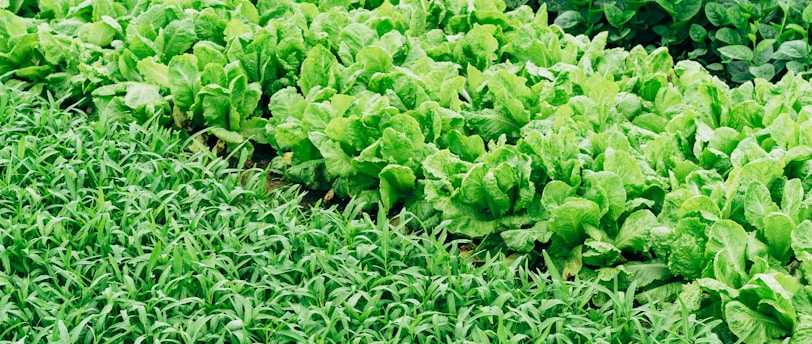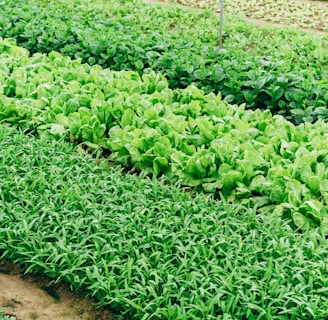Benefits of Vermicomposting
Discover the Benefits of Vermicomposting: Curious about vermicomposting? Our latest blog post delves into the incredible advantages of using worms to turn organic waste into rich, nutrient-dense compost. Learn how vermicomposting reduces landfill waste, decreases greenhouse gas emissions, and enhances soil fertility. We explore how this eco-friendly practice benefits your garden, your household, and the environment. Join us to uncover why vermicomposting is a smart, sustainable choice for any gardener or eco-conscious individual!
8/27/20246 min read


The Benefits of Vermicomposting:
Vermicomposting, the process of using worms to decompose organic waste, is more than just a gardening trend—it's a powerful, sustainable method for creating rich, nutrient-dense compost while minimizing waste. Whether you’re an avid gardener or just looking to make a positive environmental impact, understanding the benefits of vermicomposting can inspire you to start your own worm farm. This guide will delve into the numerous advantages of vermicomposting, highlighting how it benefits the environment, your garden, and your household.
What is Vermicomposting?
Vermicomposting involves using specific types of worms, most commonly red wigglers (Eisenia fetida) and European nightcrawlers (Eisenia hortensis), to break down organic materials such as food scraps and paper. These worms consume the waste, digest it, and excrete nutrient-rich compost known as worm castings. The process occurs in a specially designed bin or system, allowing you to recycle kitchen scraps and yard waste into valuable compost.
Environmental Benefits
1. Reduces Landfill Waste
One of the most significant environmental benefits of vermicomposting is its role in reducing landfill waste. According to the Environmental Protection Agency (EPA), food scraps and yard waste make up a substantial portion of municipal solid waste. By diverting these materials from landfills, vermicomposting helps reduce the overall volume of waste, which in turn decreases the environmental burden on landfill sites.
2. Decreases Greenhouse Gas Emissions
Organic waste in landfills decomposes anaerobically (without oxygen), producing methane—a potent greenhouse gas. Vermicomposting, on the other hand, takes place in an aerobic environment (with oxygen), significantly reducing methane emissions. By composting your organic waste through vermicomposting, you help mitigate the release of greenhouse gases, contributing to a healthier planet.
3. Conserves Natural Resources
Vermicomposting conserves natural resources by recycling organic waste into valuable compost. This reduces the need for synthetic fertilizers and minimizes the environmental impact of resource extraction, manufacturing, and transportation associated with commercial fertilizers. Additionally, the compost produced can enhance soil health and fertility, reducing the need for additional chemical inputs.
Gardening Benefits
1. Improves Soil Structure
Worm castings, the end product of vermicomposting, are known for their excellent soil-structuring properties. They improve soil aeration, drainage, and water retention, creating a more favorable environment for plant roots. This enhanced soil structure promotes root growth, leading to healthier, more robust plants.
2. Enhances Soil Fertility
Worm castings are rich in essential nutrients such as nitrogen, phosphorus, and potassium—key components for plant growth. They also contain beneficial microorganisms that help break down organic matter and make nutrients more available to plants. By incorporating worm castings into your garden soil, you boost its fertility and support better plant development.
3. Increases Microbial Activity
The compost produced through vermicomposting is teeming with beneficial microorganisms that contribute to soil health. These microbes help decompose organic matter, fix nitrogen, and suppress plant diseases. Increased microbial activity in the soil leads to improved plant health and resilience.
4. Reduces Soil Erosion
The improved soil structure resulting from vermicomposting helps to reduce soil erosion. Well-structured soil is less prone to erosion by wind and water, which helps to maintain soil quality and prevent nutrient loss. This is especially important in areas prone to erosion and runoff.
Household Benefits
1. Reduces Household Waste
Vermicomposting provides an effective way to manage kitchen scraps and other organic waste. By composting these materials at home, you reduce the volume of waste that needs to be disposed of through municipal waste services. This not only helps reduce waste disposal costs but also contributes to a more sustainable lifestyle.
2. Creates Valuable Compost
The compost produced through vermicomposting is a high-quality, nutrient-rich product that can be used in various gardening applications. Whether you’re growing vegetables, flowers, or ornamental plants, worm castings provide an excellent source of natural fertilizer that enhances plant growth and health.
3. Educational Value
Vermicomposting offers educational opportunities for individuals and families interested in learning more about waste management, composting, and sustainability. It provides a hands-on experience in understanding ecological processes and the benefits of recycling organic materials.
4. Low Maintenance and Cost-Effective
Setting up and maintaining a worm farm is relatively simple and cost-effective. Unlike other composting methods, vermicomposting requires minimal space and can be done indoors, making it suitable for apartment living. The initial investment in a worm bin and worms is modest, and the ongoing costs are minimal.
Health Benefits
1. Reduces Pathogens and Pests
The composting process, particularly when using worms, helps to break down and neutralize pathogens and pests present in organic waste. The high microbial activity in worm castings contributes to reducing harmful pathogens, which can improve soil health and reduce the risk of plant diseases.
2. Promotes Healthy Plants
Using worm castings as a natural fertilizer supports the growth of healthy plants by providing essential nutrients and improving soil conditions. Healthy plants are better equipped to withstand diseases, pests, and environmental stressors, contributing to a more resilient garden.
Community and Economic Benefits
1. Encourages Community Engagement
Vermicomposting can foster community engagement by encouraging neighbors, schools, and community organizations to participate in composting efforts. Community composting programs and workshops can help raise awareness about sustainability and promote collective action toward waste reduction.
2. Promotes Local Food Production
By enriching garden soil with worm castings, vermicomposting supports local food production. Healthier soil leads to better crop yields and can contribute to food security by enabling individuals to grow their own fruits and vegetables.
3. Saves Money
Vermicomposting can save money in several ways. By producing your own compost, you reduce the need to purchase commercial fertilizers and soil amendments. Additionally, reducing the volume of household waste can lower waste disposal costs.
How to Get Started with Vermicomposting
Getting started with vermicomposting is straightforward and requires only a few basic steps:
1. Choose a Worm Bin
Select a suitable container or bin for your worm farm. Options include commercial worm bins, DIY bins made from plastic containers, or wooden crates. Ensure the bin has adequate ventilation and drainage.
I have all of my worms in the Urban Worm Bin:
Click the link to see for yourself: https://bit.ly/3Xds5Yu
2. Select the Right Worms
The most commonly used worms for vermicomposting are red wigglers (Eisenia fetida) and European nightcrawlers (Eisenia hortensis). These worms are well-suited for composting and thrive in the controlled environment of a worm bin.
Click here to have your worms shipped. I recommend the Red Wrigglers.
https://unclejimswormfarm.com/?affiliates=1105
3. Prepare the Bedding
Add a bedding material to the worm bin to provide a comfortable environment for the worms. Common bedding materials include shredded newspaper, cardboard, and coconut coir. Moisten the bedding slightly before adding worms.
Tip: When using purchased bins, like the Urban Worm Bag, I found that it helped to put a decent piece of moist cardboard at the bottom of the bin. Do not worry, as you will not prevent the castings from making it to the bottom of the bag. The cardboard will be consumed and not get in the way at harvest time.
4. Start Adding Food Scraps
Begin adding organic waste to the bin, including fruit and vegetable scraps, coffee grounds, and eggshells. Avoid meat, dairy, and oily foods, as these can cause odors and attract pests. Chop food scraps into small pieces to facilitate decomposition. I like to freeze my scraps as I get them. This helps to break down the scraps a bit faster.
Tip: It is fine to wait a few days to add food scraps. This lets the worms get acclimated to their new home. They will not starve. They actually eat the bedding which is a good food source for the time being.
5. Maintain the Bin
Regularly monitor the worm bin to ensure proper moisture levels, aeration, and temperature. Adjust feeding and bedding as needed to maintain a healthy environment for the worms.
Tip: Once you are comfortable, there is no need to check daily. You know you are doing well if the worms are not trying to escape. It was hard for me to stay hands off in the beginning, but you will find your comfort level.
6. Harvest and Use Compost
After several months, you’ll notice that the original materials have decomposed into dark, crumbly compost. Harvest the worm castings and use them to enrich your garden soil or as a natural fertilizer for plants.
Conclusion
Vermicomposting offers a myriad of benefits, from reducing landfill waste and greenhouse gas emissions to enhancing soil fertility and promoting sustainable living. By incorporating vermicomposting into your routine, you contribute to environmental conservation, improve your garden, and enjoy the practical advantages of nutrient-rich compost. Whether you’re a seasoned gardener or just starting out, vermicomposting is a valuable tool for creating a more sustainable and productive ecosystem.
Embrace the power of worms and transform your organic waste into a resource that benefits the environment, your garden, and your community. With minimal effort and investment, you can enjoy the rewards of vermicomposting and make a positive impact on the world around you.
EMPOWER
Insightful, practical, expert-driven content that helps gardeners
Thrive
Grow
YardandGardenRoots@gmail.com
© 2024. All rights reserved.
